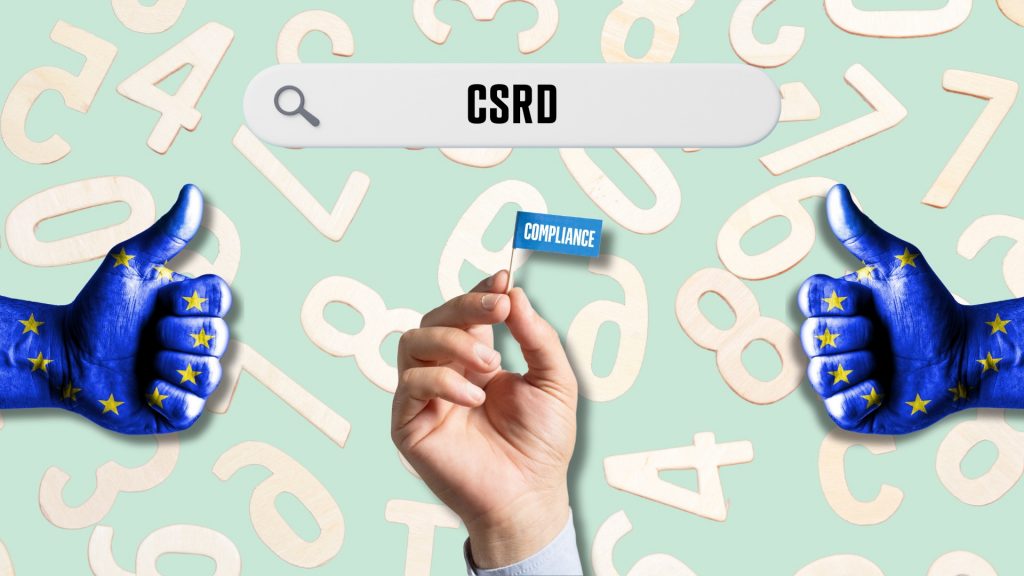The field of management and organization studies has started to increasingly address grand societal challenges (GSCs), such as climate change, pandemics, or sociel inequalities. Yet, polarization —defined as the growing alignment of societal differences into an “Us vs. Them” dynamic—has received surprisingly little attention, thus far.
Insights
Public and Private Accountability in the Green Transition – A Paradox of Responsibilization?
Government plays crucial roles in addressing and acting on the green transition and grand societal challenges more broadly. One of these roles is to make private businesses responsible and accountable for sustainable development through public policy. But what about government’s ability to make itself and the public sector responsible and accountable for green actions and outcomes? Based on the case of Denmark, this blog post argues that the self-responsibililization of government and the public sector calls for closer scrutiny as it tends to be characterized by decoupling and lack of clearly defined ownership and accountability regarding the green transition.
Strategies of Sustainability Communication
Corporate sustainability communication is becoming more sophisticated. This does not imply that such communication has become more truthful or more efficient in attaining its goals. What it means is that corporate communicators have become more aware of the dynamics at play when publicly announcing their sustainability ideals and aspirations. Taking a point of departure in a recent campaign from Apple, this blog post provides a glimpse into the strategic concerns, hopes and practices of contemporary corporate communicators. Understanding these concerns, hopes and practices can help us appreciate how communication and sustainability practices are related.
Corporate responsibility is back. It is about time…
If like me, you are following how private organisations are communicating about their work with their social and environmental impact, you certainly have noticed that they never have been short of buzzwords. As confusing as they may be, these buzzwords show an interesting dynamic of changing concepts and new trends and priorities for companies.
What local wine producers can teach global industries about green practices
New research studying winemakers in Italy exposes how production processes can become more environmentally friendly through institutional support, civil society pressure, and tech innovation. Prosecco’s popularity over the last two decades has grown exponentially; the Italian sparkling wine now sells more bottles than champagne and cava combined. Valpolicella also enjoys global success, although on a […]
The Taxonomy, CSRD, ESRS – Let’s Not Make it a Numbers Game
Europe’s new sustainability regulations such as the Taxonomy and CSRD come with a risk: they may turn corporate sustainability into a “numbers game” with compliance being the main (and sometimes only) goal. We risk ending up with lots of reporting but too little actions. European companies face a wave of sustainability regulations, most notably the […]
How unfairness in CEO compensation breeds corporate irresponsibility
CEO compensation, especially stock options, is a hotly debated topic for management and society. While CEOs earn several hundreds times more than average workers, largely through stock options, adding to growing inequality in our society, it is argued that such stock options are important to appropriately incentivize and remunerate CEOs for the enormous responsibilities they undertake. […]
Lobbying as if it mattered – an update: The Egypt Climate Summit and the Bleeding Edge of Demanding Corporate Political Responsibility
About a year ago, I traced the evolution of expectations about what responsible lobbying should look like. Back then I argued that the climate emergency is driving a substantive re-evaluation of what it means for companies to engage with the political sector in a responsible manner. The most recent COP27 summit provides yet more intriguing evidence of how the climate emergency is driving a deep transformation of what responsible lobbying means. Here are two examples:
Does sustainability get lost in the iron triangle?
Mounting evidence shows that while an increasing number of companies pledge to address sustainability challenges and reduce emissions, delivering on those promises is proving difficult. Companies are advised to get better at aligning priorities and operational goals. Yet one overlooked aspect of organisational life continues to surface in our data, as a barrier to realising the sustainability promises of companies. And that is something as ubiquitous as projects.
Governments’ Greenwashing and the Meaning of the “Fossil of the Day” Awards
An important, yet somewhat controversial international summit, the 27th Conference of the Parties to the United Nations Framework Convention on Climate Change – commonly known as COP27 – is currently taking place in Egypt (6–18 November 2022). The first COP meeting was held in Germany in 1995 and the series of subsequent meetings has been […]










